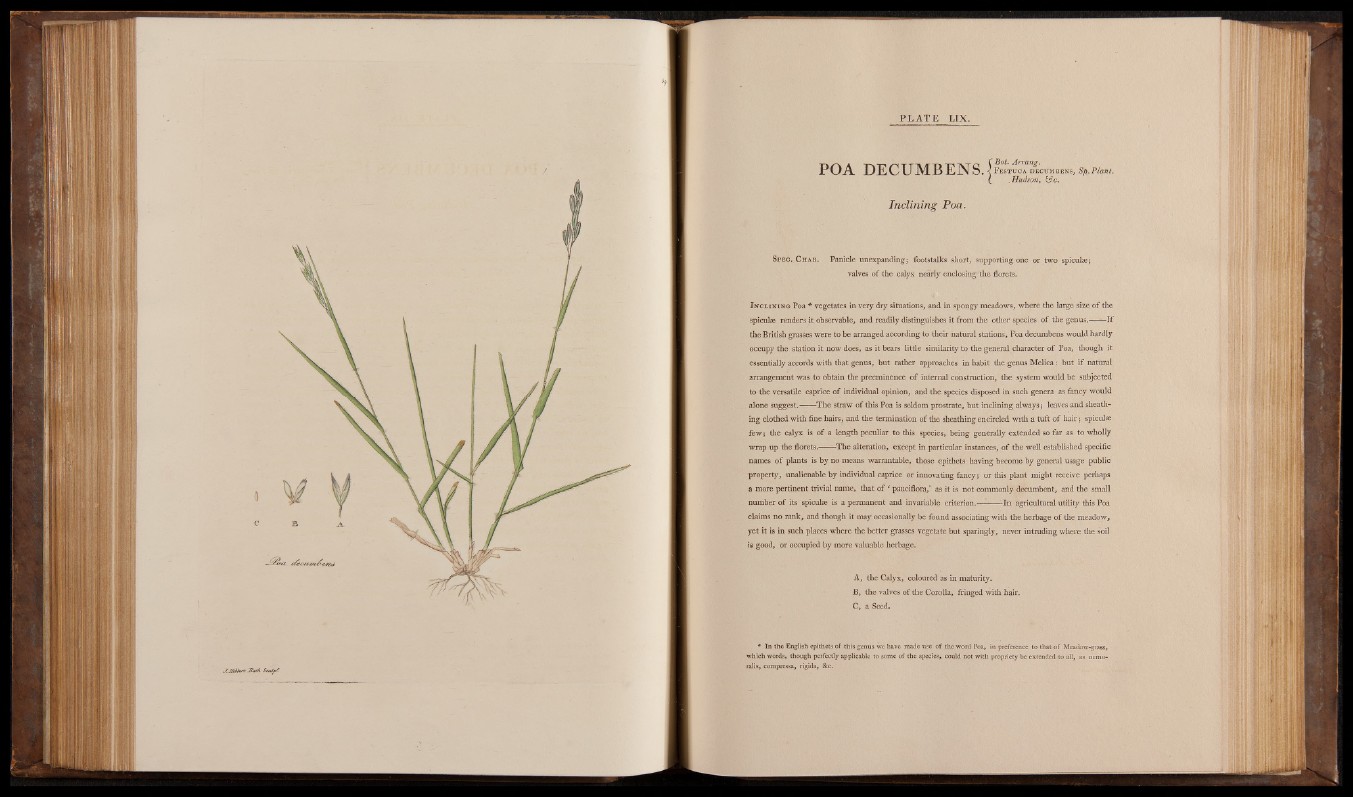
POA Sp.Plant.
| .Hudson, &c.
Inclining Poa.
Spec. Char. Panicle unexpanding; footstalks short, supporting ofte or two spiculae;
valves of the calyx nearly enclosing the florets.
I nclining Poa * vegetates in very dry situations, and in spongy meadows, where the large size o f the
spiculae renders it observable, and readily distinguishes it from the other species of the genus.------ If
the British grasses were to be arranged according to their natural stations, Poa decumbens would hardly
occupy the station it now does, as it bears little similarity to the general character o f Poa, though it
essentially accords with that genus, but rather approaches in habit the genus Melica: but if natural
arrangement was to obtain the preeminence o f internal construction, the system would be subjected
to the versatile caprice of individual opinion, and the species disposed in such genera as fancy would
alone suggest.—— The straw o f this Poa is seldom prostrate, but inclining always; leaves and sheathing
clothed with fine hairs, and the termination of the sheathing encircled with a tuft of hair; spiculae
few; the calyx is of a length peculiar to this species, being generally extended so far as to wholly
wrap up the florets.-----—The alteration, except in particular instances, of the well established specific
names of plants is by no means warrantable, those epithets having become by general usage public
property, unalienable by individual caprice or innovating fancy; or this plant might receive perhaps
a more pertinent trivial name, that o f 1 pauciflora,’ as it is not commonly decumbent, and the small
number of its spiculae is a permanent and invariable criterion.— -------In agricultural utility this Poa
claims no rank, and though it may occasionally be found associating with the herbage of the meadow,
yet it is in such places where the better grasses vegetate but sparingly, never intruding where the soil
is good, or occupied by more valuable herbage.
A, the Calyx, coloured as in maturity.
B, the valves of the Corolla, fringed with hair.
C, a Seed.
* In the English epithets of this genus we have made use of the word Poa, in preference to that of Meadow-grass,
which words, though perfectly applicable to some of the species, could not with propriety be extended to all, as nemo-
ralis, compressa, rigida, &c.